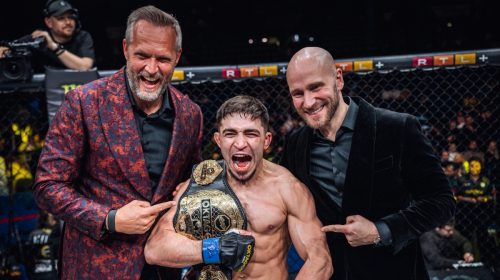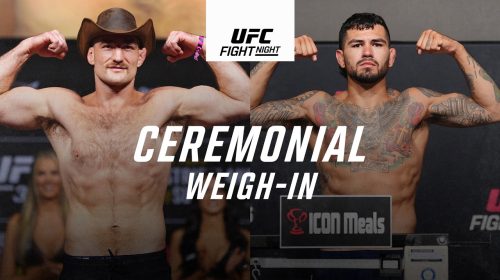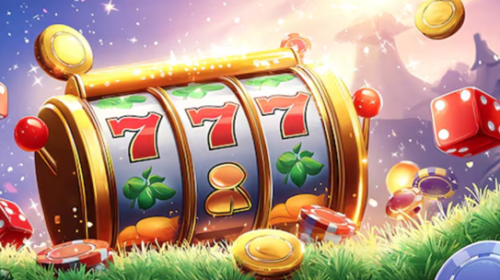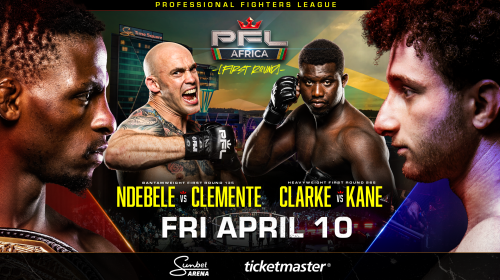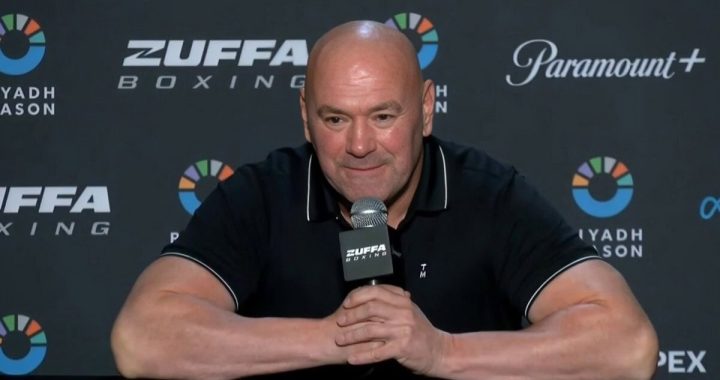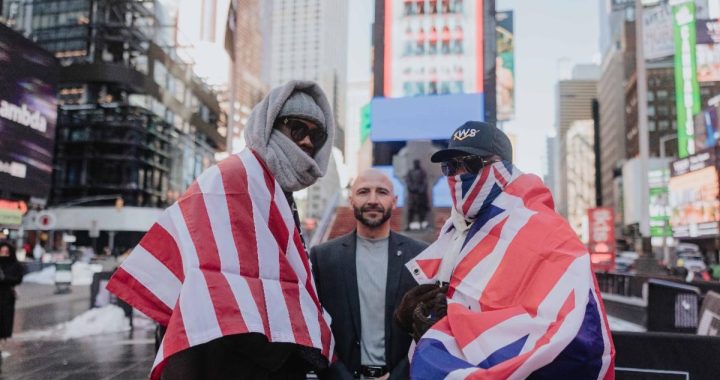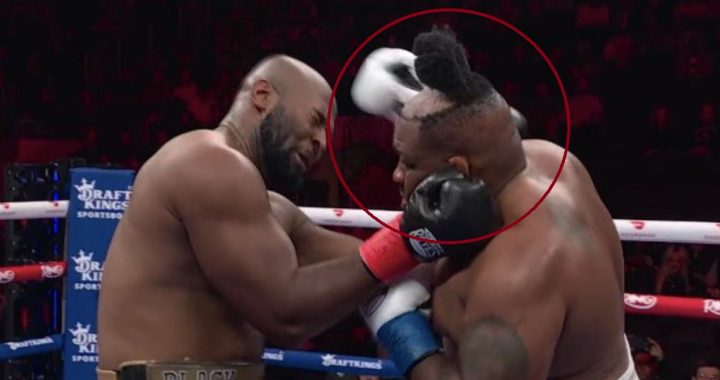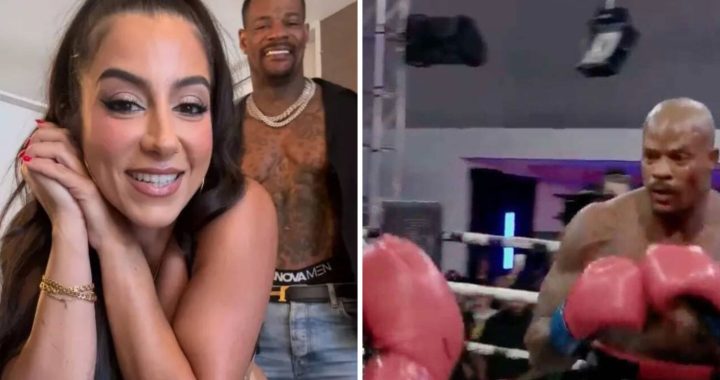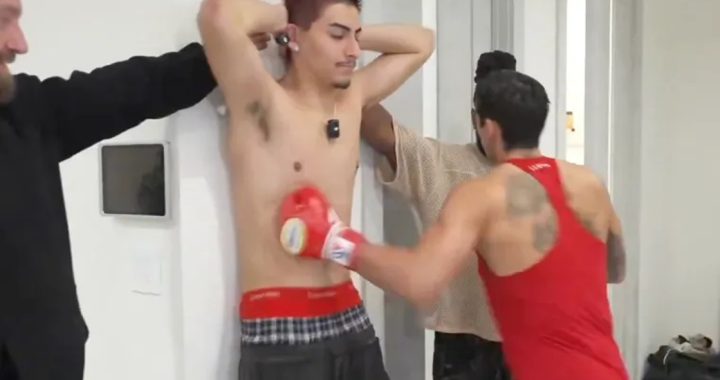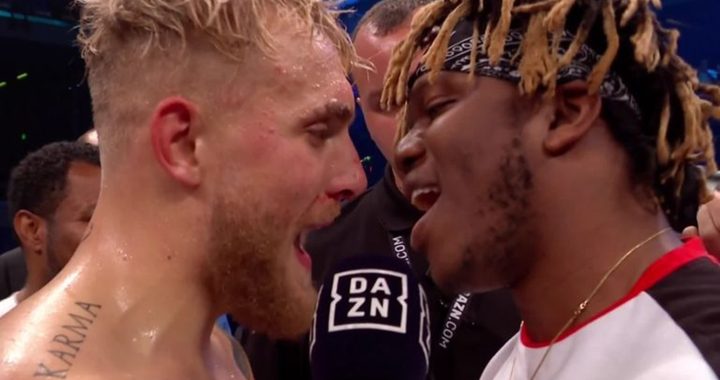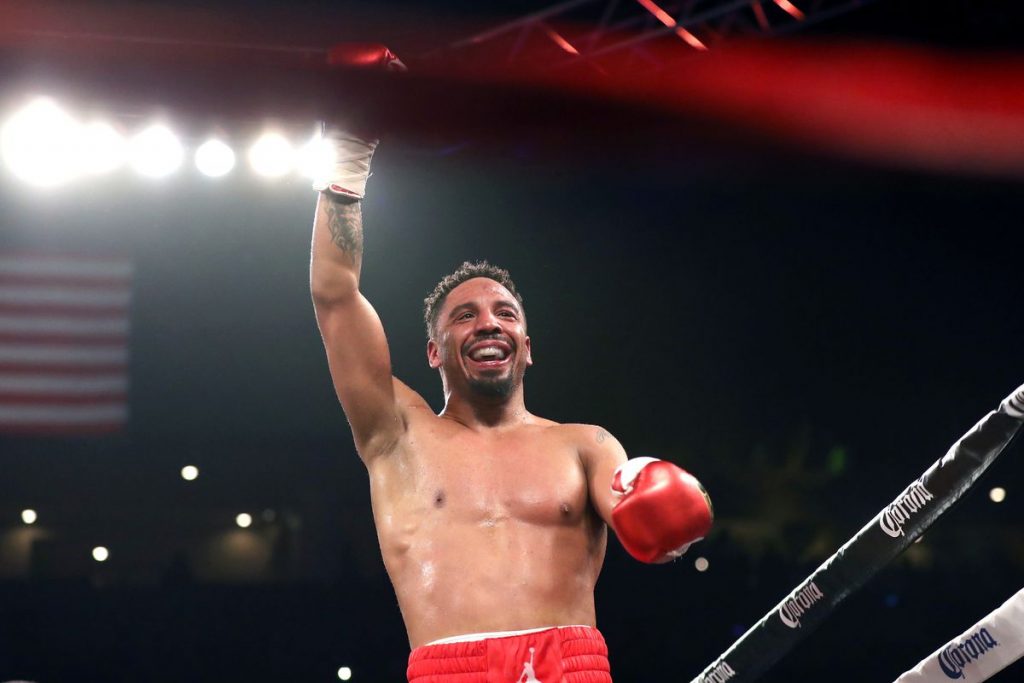
Boxing Across the Nation: California – The Underappreciated Career of Andre Ward
Boxing Across the Nation: California – Andre Ward
Boxing has been apart of the American sports scene since the 1700’s by way of England. It started by infiltrating the larger port towns before eventually working it’s way into the lexicon of America. Boxing started as an illegal sport which saw it’s athletes arrested. Now it showcases some of the most talented combat sports athletes in the world. We will embark on a 50 part saga exploring the best boxers representing the United States. Some states will obviously have more athletes to choose from than others but the journey will be quite the ride. Let’s embark on the journey looking at an interesting fighter from each state.
Before we get going with our fifth entry, make sure to go back and check out the four states we have covered by clicking below.
Alaska-Hector Camacho vs John Montes Card
Arizona-Hall of Famer Michael Carbajal
Arkansas-The Tragic Story of Sonny Liston
We have made it to the fifth state in our 50 part series (covering in alphabetical order), California. The 31st state to join the union, California is ranked 1st as far as population rank. The state is the birthplace of baseball legend Joe DiMaggio as well as martial arts legend Bruce Lee. In addition to it’s handful of professional sporting teams, San Francisco, home of Andre Ward, used to be the home of boxing. Burt Sugar, boxing historian, once said of pre-World War I San Francisco, “It wasn’t just a hub of boxing. It was THE hub of boxing.” With a population near 200,000 in the 1800’s, San Francisco now has a population greater than 880,000.
Growing Up and Finding Boxing
On February 23, 1983 one of the greatest boxers to never truly earn the spotlight he deserves, Andre Ward, was born. He was born to an African American mother and an Irish American father. Ward’s story is not often publicized and he’s done his best to speak little and fight hard. In an interview with The Undefeated, Ward stated, “I’ve never talked about my parents before and some of their struggles. I always wanted to protect their names and protect who they were. I didn’t want my story to be reduced to just another cliché, rags-to-riches, kid from the ghetto and all that. For the most part, I grew up middle-class. I know I’m very guarded. How do you think I survived? Guarded is what got me by. But I want people to know what I’ve come through and overcome because maybe that can inspire somebody.”
Ward grew up mostly with his father Frank, who was an amateur heavyweight boxer in his high school days. His father actually introduced him to the sport after telling him stories of his boxing days as an amateur. Young Ward was curious and wanted to try it out. Ward’s mother spent most of her time in the streets of San Francisco battling a crack cocaine addition. Unfortunately his father was battling an addiction of his own with heroine. After years of witnessing his parents fight drug addition, young Ward moved in with his trainer Virgil Hunter at about age 11. Hunter would remain Ward’s trainer throughout his career. Hunter would go on to earn BWAA Trainer of the Year in 2011. Another interesting fact about Hunter is he is the father of singer Keisha Cole.
Amateur Ranks and Olympic Gold
Ward’s amateur career began on July 11, 1999 with a victory over Bernardo Castillo. He would continue fighting at the amateur level until August 29, 2004 which was his final bout. Ward earned a record of 115-5. One of those losses was in the 1st AIBA American 2004 Olympic Qualify Tournament, dropping the bout to Edgar Munoz. The loss did not stop Ward who still qualified for the 2004 Athens Olympic Games. Ward put on an amazing show, winning the gold medal in the light heavyweight division. Andre Dirrell was the only other American boxer to win a medal. The games featured other huge names with “GGG” Gennady Golovkin winning the middleweight silver medal and Amir Khan winning the lightweight silver.
Winning the Gold
In an interview with 15Rounds in 2010, Ward stated on winning the gold medal, “You know what winning a world title is awesome, tremendous thing to do to accomplish but it’s a business in the professional ranks. But representing your country on a stage like the Olympic games. Nothing will ever surpass that, it will always be in my life, in my heart. Everyone can relate to the Olympics, everyone may not relate or understand professional ranking and professional Boxing. The Olympic games is something that always gets people’s attention. Not only did I compete but I won the highest prize.” After the 2004 games, Ward decided it was time to turn professional.
Turning Pro After the Games
Ward began his career on December 18, 2004 in the middleweight division. His first bout was a second round TKO against Chris Molina. Ward continued his winning ways slowly moving up in weight. After earning a 15-0 record and about three and a half years as a professional, Ward got his first title shot against Jerson Ravelo for the vacant WBO-NABO super middleweight title. After a TKO to win the title and a TKO in his next bout, Ward continued to rack up the WBO regional titles. It was now time for Ward to make his name in history at the 2009 Super Six World Boxing Classic.
2009 Super Six World Boxing Classic
Arguably Ward’s claim to fame is the 2009 Super Six World Boxing Classic. The super middleweight tournament was held from 2009 to 2011 with six of the world’s top of that division. Fellow medalist Andre Dirrell along with former middleweight champions Jermain Taylor and Arthur Abraham comprised half of the field. Aside from Ward, the other half of competitors consisted of then WBA super middleweight champion Mikkel Kessler and then WBC super middleweight undefeated champion Carl Froch. The initial round of bouts were setup into three groups in 2009 and 2010 followed by the semi-finals and finals in 2011.
In the initial group of the tournament, Ward faced off with WBA champion Mikkel Kessler. The bout took place November 21, 2009 at the Oracle Arena in Oakland, California. Due to two headbutts to Kessler in the contest a doctor ruled a stoppage to the bout. The scorecards were tabulated up to that point and Ward was determined the winner. He would gain his first world title, claiming the WBA super middleweight title. Due to injury, Allan Green replaced Jermain Taylor and faced Ward in the next group. Ward dominated all 12 rounds and easily took the decision. For Green, he was the first Oklahoma native to fight for the world title since Tommy Morrison 17 years prior.
Final Four
With his domination of Green, Ward clinched his spot in the final four. His next contest in the tournament was set for May 14, 2011 against Arthur Abraham for the WBA super middleweight title. Abraham was a former IBF middleweight champion. With another dominant performance, Ward clinched the first spot in the finals with Carl Froch and replacement Glengoffe Johnson set to face off later that June. Froch would retain his WBC title against Johnson, setting up a finals with Ward for December 17, 2011 in Atlantic City. Johnson was no push-over either. He was named The Ring’s and BWAA’s Fighter of the Year in 2004 mainly due to his knockout victory over Roy Jones Jr.
Tournament Finals
On December 17, 2011 Ward and Froch clashed in a highly anticipated battle. A lot stood on the line. This was Ward’s fourth defense of the WBA title and Froch’s second defense of the WBC title. The Ring super middleweight title and Super Six World Boxing Classic championship also stood on the line. Ward, the master of consistency throughout the tournament, won the decision on all three scorecards. Commentator Barry McGuigan stated of Ward, “He has catapulted himself into the top ten pound for pound. That was a most magnificent performance. He diffused Froch’s power by coming back, really beautiful stuff.” Ward out-landed Froch by nearly 100 punches and had nearly 20% better landing rate. With his tournament performance, Ward set the world on notice. Boxing had a new king on the block.
Made in America: Champion vs. Champion
Due to a broken hand, it was about nine months until Ward could return to action. When he did so it was against the current WBC and The Ring light heavyweight champion, Chad Dawson. The clash took place September 09, 2012 in the Oracle Arena again in Oakland. The bout was at super middleweight, so Ward’s WBC and WBA titles were on the line. Dawson hadn’t dropped that much weight in several years and it was apparent on his body. He looked drained and had to cut nine pounds on fight day. The only knock that existed on Ward’s game was his ability for the highlight finish.
After his 10th round TKO of Dawson, Ward told ESPN, “I love to win, and everybody is asking me what’s the missing piece of the puzzle,” Ward said. “Finishing guys is the last piece of the puzzle, and we are on our way to doing that. With better competition, I rise to the occasion. I raise my game. It might have looked easy, but Chad Dawson is a monster.” Ward would take one more bout before his extensive layoff and move up to light heavyweight.
Layoff and Move Up to Light Heavyweight
581 days. That’s the length of time Ward was out of action. Prior to his return, Ward signed with Jay Z’s Roc Nation Sports for this return bout against Paul Smith at a catch weight. The event was brought to HBO but they rejected the comeback bout when seeing Ward’s opponent. The event aired on BET with a viewership only around 320,000. Taking place in Ward’s backing, the Oracle Arena, Ward dominated the 172 pound catchweight bout earning a ninth round TKO. After the bout, Ward made the jump to light heavyweight and vacated his super middleweight titles to start the new journey in his career.
Light Heavyweight Debut
In order to help solidify his place in boxing history, Ward moved up again in weight to light heavyweight. Not one to take the easy way out, Ward jumped into the ring with the IBF’s top contender, the undefeated Cuban Sullivan Barrera. Both fighters walked into the ring undefeated, but one would not walk out that way. Prior to the bout, Ward was stated in Boxing Scene saying, “This move right here was not about money. It’s about just wanting to be great. And I want to be great. I don’t just want to be a really good fighter. I want to be considered one of the guys who took on the best throughout his career, throughout the ups, throughout the downs who always challenged the best. And that’s what I want to be remembered for and that’s what this move is all about.”
If Ward came out victorious, he would earn a mandatory title shot against WBA (super), IBF, and WBO light heavyweight champion, Sergey Kovalev. As expected by many, Ward pulled off another dominating performance, taking most of the rounds in the Oracle Arena in front of nearly 9,000 fans. Prior to the Kovalev super fight, Ward took a bout against a 39 year old with a 25-1 record, Alexander Brand, the WBF super middleweight champion. As Ward proved throughout his career, he always took on the best, Brand’s only loss was to future world champion, Badou Jack. The bout with Brand would be Ward’s last in the Oracle and took place in August 2016. Ward, per his usual, dominated the tough competition taking all 12 rounds. The bout was set for Ward to cement his legacy for November 19, 2016 against Kovalev.
Cementing a Legacy with the Kovalev Bouts
The super fight was everything any boxing fan could hope for and more. November 19, 2016 was the date of their first controversial encounter. The bout was scored extremely close (114-113) by all three American judges. The cards were tied up heading into the 12th round. Kovalev did complain of “hometown favoritism” with all of the judges being American. According to many others, Kovalev is not alone in thinking he won the bout. Several members of the media (44 of 61) actually scored Kovalev as the victor. HBO commentator Harold Lederman had Kovalev winning decisively with a 116-111 score. According to Compubox Kovalev out-landed Ward 126(26.6%landed) to 116(34.4%landed) and out power-punched Ward 78 to 61.
In post-fight comments Ward stated,”I knew it was a close fight. I think the crowd feels like the real winner won. In a tight fight, he’s going to feel like he got robbed.” This marked Ward’s first visit to Las Vegas with the two fighters packing over 10,000 into the T-Mobile Arena.
Kovalev Rematch Leading Into Retirement
Much like the first bout, the rematch set for June 17, 2017 this time at the Mandalay Bay Events Center, ended by knockout but with just as much controversy as the first ending. With Ward up on two of the three scorecards entering the eighth round, he landed a huge right hand to Kovalev’s head which had the now-challenger hurt. Once on the ropes Ward delivered three hard body shots which many stated were low blows. Kovalev doubled over in pain and Ward was given the TKO victory.What many did not know is that this would be Ward’s swan song, his last bout.
Ward wrote the playbook on defeating the powerhouse light heavyweight that Canelo Alvarez would later use, go for the body. ESPN posted a quote of Ward stating, “I’ve never been the best, but I’ve always worked the hardest. I could tell he was reacting to my body shots, and I knew I had him then. I knew he was hurt. It takes something to do something.”
Retirement and Post-Fighting Influence
Three months and one week after the second Kovalev bout, Ward announced via his website he was official retiring from competition. Ward has stayed close to the sport, commentating as an analyst for Top Rank Boxing on many events. He is also the manager for upcoming star Skakur Stevenson. Debuting in the pro ranks under Ward, Stevenson, the 22 year old future star, is currently the world’s WBO featherweight champion and undefeated at 16-0. Though 36 years old at this point, there is still always a possibly for Ward to return to the ring should the right challenge arise. As far as legacy, Ward has done everything needed to cement his as one of the greatest fighters of all time. More light should be shown on his illustrious career.
